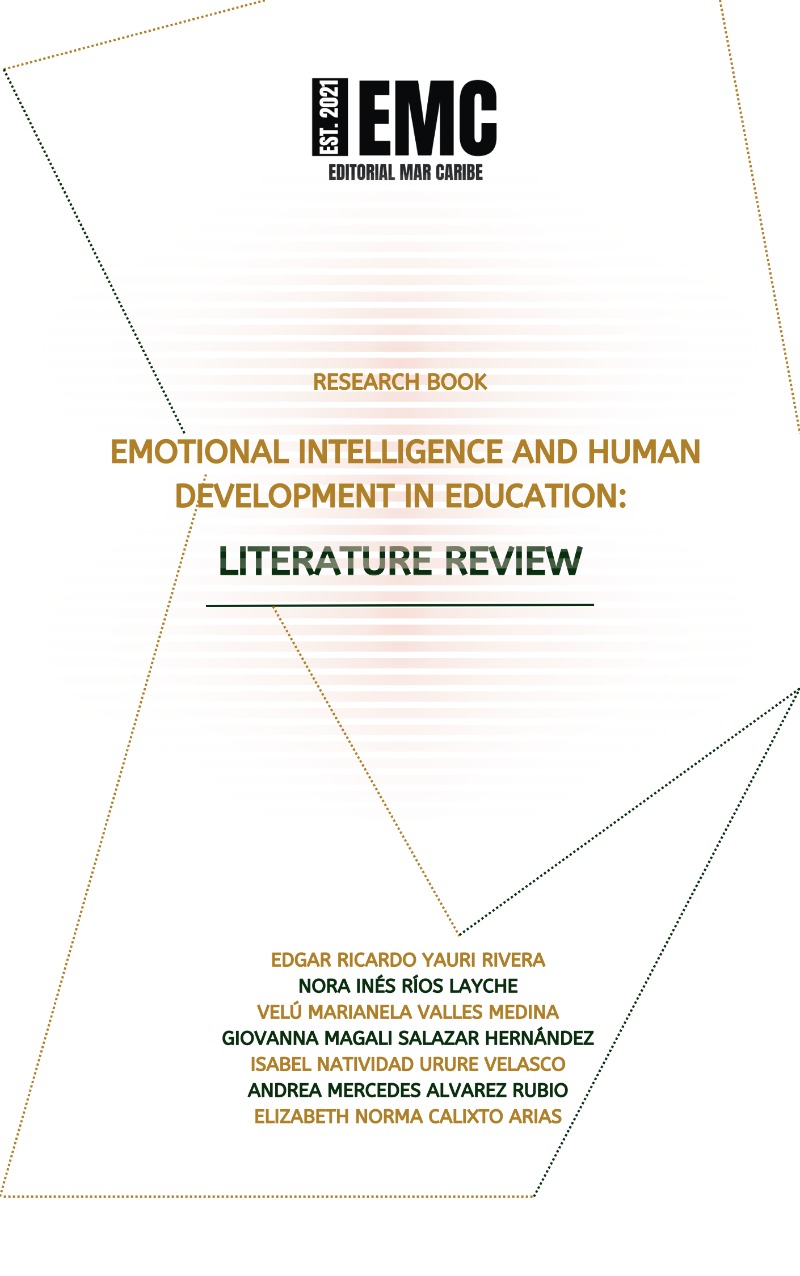
Emotional intelligence and human development in education: Literature review
Ríos Layche, Nora Inés
Valles Medina, Velú Marianela
Salazar Hernández, Giovanna Magali
Urure Velasco, Isabel Natividad
Calixto Arias, Elizabeth Norma
Alvarez Rubio, Andrea Mercedes
Editorial:Editorial Mar Caribe
Materia:Psicología educativa
Público objetivo:Profesional / académico
Publicado:2024-11-27
Número de edición:1
Tamaño:5Mb
Precio:$420
Soporte:Digital
Formato:Pdf (.pdf)
Idioma:Inglés
Libros relacionados
Equidad en el acceso a la educación y a las tecnologías - Angeriz, Esther
Evaluación de la inteligencia en niños - Kahan, Evelina; Salvo, Lourdes
Retroalimentación y colaboración para la Evaluación Formativa en la Educación Matemática - Guía 3 - Balbi Broch, Alejandra; Bonilla, Micaela; Fripp, Ariel; Berrutti, Sofía
EPA Evaluación para el aprendizaje - Balbi Broch, Alejandra; Bonilla, Micaela; Fripp, Ariel; Natalia, Balmori; Berrutti, Sofía
Reseña
The purpose of this book is to make the reader aware of the importance of the development of emotional intelligence (E.I.) for human development and its education in people's lives and the need to strengthen education, especially the second cycle of pre-school education. Knowing that this is a critical period, we assume that this education will positively affect the development of cognitive intelligence and success in various areas of life.
In the educational context, teachers become the main emotional guides of students, which implies acting as role models, who are able to capture, understand and regulate the emotions of their group in favor of their own emotional balance. We need teacher training to fill the educational gap in the development of skills to manage our thoughts, feelings and emotions, skills that were previously less important, but whose acquisition allows us to better understand our reality and improve our personal and professional relationships, this is human development.
For this research we have outlined four chapters, in the first one the factors that transcend in the psychological development of the being are detailed, the categories from the historical-cultural and the psychosocial perspective in educational processes. In chapter two, we look at Latin America with an emphasis on the transformation of teaching and learning, socioeconomic inequalities in the quality of education and how the future in the region is envisioned, continuing in the third chapter with the analysis of state policies, the impact of humanism at an early age, the development of critical thinking, and key aspects of inclusive education for human development. Finally, we close with the interpretation of Daniel Goleman's emotional intelligence in interpersonal relationships and how personal growth is fostered in various aspects of life.
The teacher's task and responsibility are not only to provide knowledge to the students, but also to contribute to the progress of each child and to achieve this goal, i.e. to develop the child's cognitive intelligence. In this way, by boosting their development, it is possible to contribute to the creation of a smarter and happier world. Although E.I., is becoming a popular topic, it still does not receive the recognition it deserves from an educational perspective. Because it is not just about demonstrating the importance of emotional education for children. It is worth remembering that parents, teachers, counsellors, educators... must also move from persuasion to learning skills to favour and strengthen emotional development.
At present, it is difficult to deny the idea that there are several, or at least some, intelligences or intelligent abilities, which are different from each other and contribute to social adaptation. The notion of a single intelligence associated exclusively with the understanding and assimilation of mathematics and arithmetic is discarded. In this sense, the author considers that a person's academic intelligence, their school achievements, including grade point averages and degrees obtained, is not the only way in which intelligence is manifested for life in society. This idea does not answer the question that there are people with excellent academic results and poor skills for social relationships or sports.
In his theory he highlights the role of the biological conditions of the brain and their influence on psychological development, educational efforts have to consider as much as possible, the knowledge and usefulness of these theories, as well as the flexibility and adaptability of the child's brain. Various research on intelligence and cognition suggests that there are numerous different intellectual faculties, which find expression in various spheres of life. Each intellectual competence can have a unique developmental history.
The review of neurobiology studies reveals the existence of areas in the brain that correspond to particular types of cognition. The same studies point to a neural organization that is in line with the idea of various modes of processing information. The use of this theory and its impact on the educational field is considered to diagnose the intellectual profile at an early age, which would serve as a basis to enhance their education and improve their opportunities.
A great contribution, considered by the author himself as fundamental in his theory, is the conception of human cognition as parallel processes that are independent of each other. For this reason, he has repeatedly pointed out that the multiple intelligences he proposes could actually be so many, he does not limit the number, although he has studied some of them in more detail.
Considering the complexity of the educational process in all its dimensions, it is vital to cover a considerable number of components. The first of these, the modes of learning, are related in different environments to the participating intelligences, but separate from them. The most basic form could be direct or unmediated learning.




